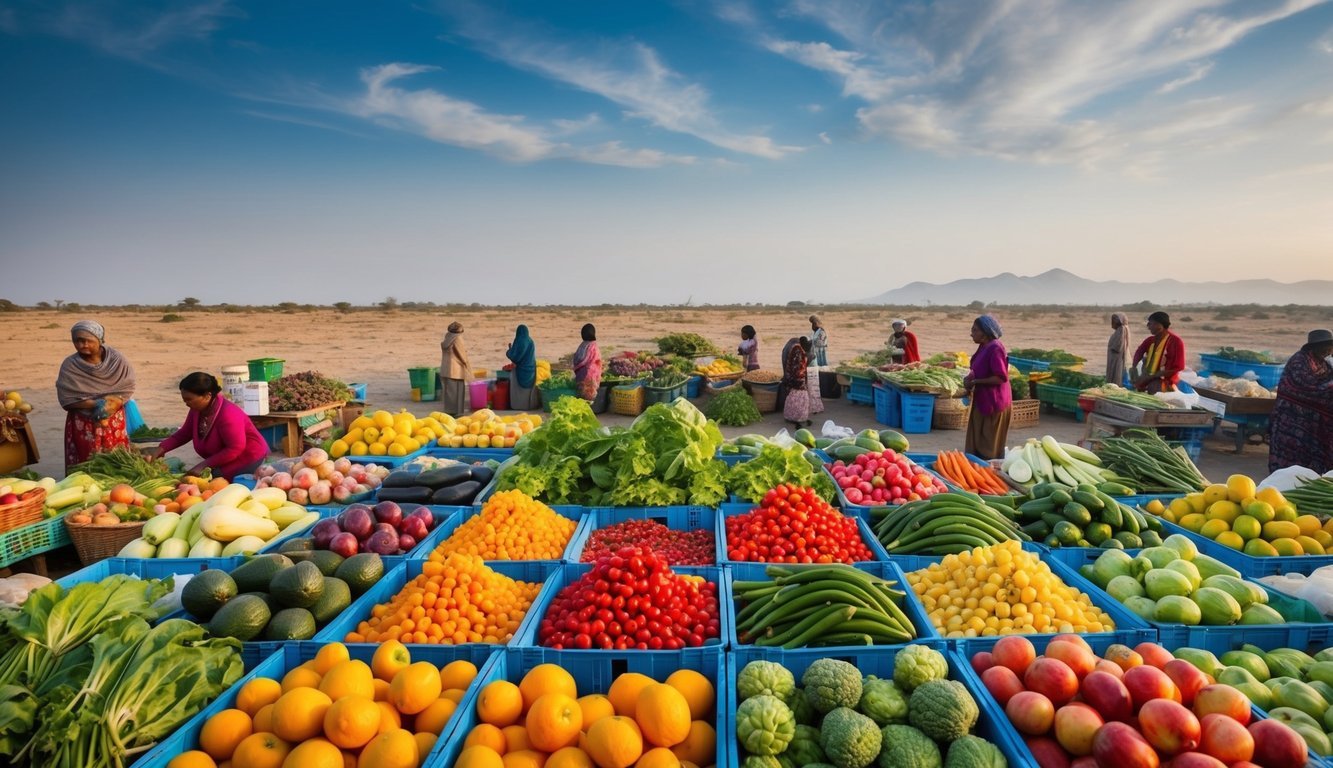
Recent research from the Potsdam Institute for Climate Impact Research (PIK) has uncovered troubling patterns in our food systems.
Farmers are now capturing a smaller share of what consumers spend on food.
This study highlights the divergent impacts of agricultural climate policies between wealthy and developing nations.
In rich countries, food production costs are often cushioned by added processes like processing, transportation, and marketing, helping to shield consumer prices from the shocks of climate initiatives.
However, in poorer nations, where production costs are significant, rising food prices driven by climate measures pose a serious challenge.
Disparities in Farmer Revenue
Leading this research, David Meng-Chuen Chen noted that in countries like the United States and Germany, farmers typically earn less than 25% of the total consumer food expenditure.
In stark contrast, the figure exceeds 70% for farmers in regions such as Sub-Saharan Africa, illustrating a sharp difference in how food systems function globally.
This divide has the potential to widen as economies grow and food supply chains become more industrialized, which could result in farmers retaining an even lower portion of food-related spending.
Consumer Price Implications
Benjamin Bodirsky, another contributor to the study, emphasized that consumers in affluent nations tend to buy processed foods—items like bread, cheese, and sweets—where the original ingredients account for only a fraction of the total cost.
The significant portion of the consumer price that goes towards processing and distribution serves to insulate buyers from extreme price fluctuations related to agricultural climate policies, but it raises questions about the meager financial returns farmers receive.
Long-term Sustainability and Climate Policies
The research employed a blend of statistical analyses and process-based modeling across 136 countries and 11 food categories, scrutinizing prices both for meals prepared at home and those enjoyed out.
Chen explained that unlike many studies that zero in on farm-level costs, their approach spanned the entire food value chain, which allowed for a comprehensive evaluation of how climate policies could influence consumer prices at various points, from grocery outlets to restaurants.
Moreover, the researchers projected that ambitious climate initiatives could have a limited effect on food prices in wealthy countries by the year 2050.
They anticipated that consumer prices might rise by around 1.25 times in these nations due to new climate policies, while the prices received by producers could jump by 2.73 times.
In contrast, low-income nations could see consumer prices skyrocket by 2.45 times under similar policies, and farm prices may surge by as much as 3.3 times.
Though the increase in farm prices would be steeper in these regions, the resulting climb in consumer prices could further strain low-income households’ ability to access nutritious food.
Nevertheless, the potentially negative impacts of climate policies on food prices don’t necessarily spell disaster for vulnerable consumers.
Previous studies by PIK have suggested that utilizing revenue generated from carbon pricing to support low-income families could mitigate the effects of rising food costs and even enhance their financial situations over time.
Hermann Lotze-Campen, who heads the Climate Resilience Research Department at PIK, stressed the vital need for robust climate policies.
He pointed out that, although these policies might create immediate hurdles for consumers, farmers, and food producers, they are essential for ensuring long-term sustainability within agriculture and food systems.
Without proactive climate action and emission reduction strategies, the grim reality of unchecked climate change—facing challenges such as crop failures and disruptions to supply chains—could lead to even greater food inflation.
Lotze-Campen advocates for climate policies that include supportive frameworks for both consumers and producers, suggesting equitable carbon pricing, financial assistance for affected communities, and investments in sustainable farming practices.
Source: ScienceDaily

